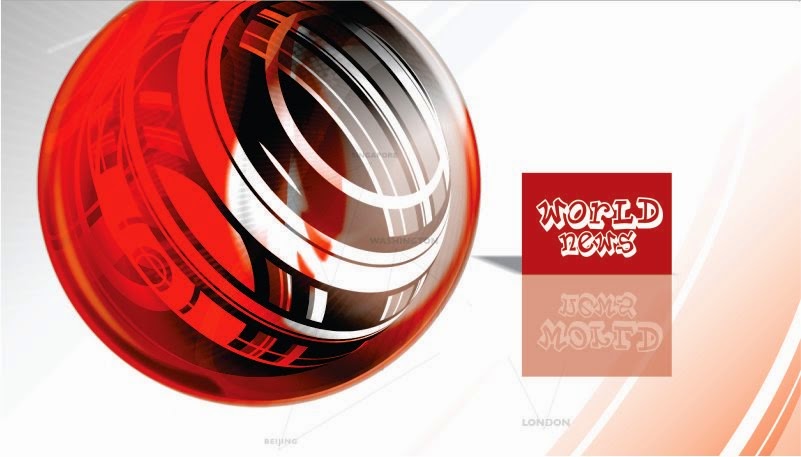Ed Miliband, the leader of Britain’s
Labour Party, and his wife, Justine Thornton, after casting their votes
in the village of Sutton, in northern England.
This was pretty remarkable, and not only for the obvious reason that, at least to my memory, the polls have never been quite this close in a British election. With the national vote roughly even (assuming that the polls are accurate) and the election being carried out under Britain’s constituency-based and first-past-the-post system, everything comes down to how things play out in roughly a hundred battleground seats, or, as they are called in the U.K., marginal constituencies. Over-all vote shares don’t automatically translate into numbers of seats in the House of Commons. Still, most of the pollsters are projecting that the two major parties will win roughly an equal number—somewhere around two hundred and seventy-five, which would leave both of them well short of the three hundred and twenty-six seats needed for a majority.
That is the last-minute snapshot. In narrative terms, however, what really stands out is that public opinion appears to have barely moved at all during the campaign. Polls published as far back as January also showed the race tied. Polls published in March showed the same thing. Right up until the last couple of weeks, though, the overwhelming consensus of opinion among British pundits was that David Cameron and the Conservatives, who for the past five years have been the senior partner in a coalition government with the Liberal Democrats, would enjoy a significant bounce as the election approached.
The basis of this consensus was never fully clear to me. Doubtless, some of Fleet Street’s finest papers were taking guidance from their right-wing proprietors, and from Conservative Party H.Q., which has been assiduously promoting the last-minute-surge theory. In fairness, though, there were also a couple of reasons why it sounded vaguely plausible. The British economy has grown faster than those of its European counterparts over the past couple of years, and virtually all the polls showed the Conservatives with a considerable lead over Labour on the key issue of economic management. Moreover, Ed Miliband, Labour’s youthful leader, who has been subjected to a withering and extended character assault by the Tory press, had yet to show that he could withstand the rigors of a campaign.
If the polling projections turn out to be accurate, however, neither the economy nor the Labour leader’s perceived weakness is looking sufficient to deliver the election to the Conservatives, and this has to be scored as a big victory for Miliband. At this time last year, many people in his own party thought that he had no chance of being the next Prime Minister, and there was even gossip, in some quarters, about replacing him. But the forty-five-year-old North Londoner—who took over the party leadership, in 2010, after a bruising contest with his own brother, David, the foreign secretary in the last Labour government—has overcome his critics, both internal and external. Rather than softening his progressive positions on issues like taxing the rich and regulating monopolies, which had led to him to be labelled “Red Ed,” Miliband stood his ground, and, during the election campaign, his performance has exceeded most people’s expectations. While nobody could mistake him for one of the great Labour orators of the past, such as Nye Bevan or Tony Blair, he has been articulate and forceful, and, crucially, he didn’t make any big gaffes.
Indeed, if it weren’t for what is occurring in Scotland, where the Scottish National Party (S.N.P.) looks like it will sweep the board, Miliband would be on the verge of a great victory. On the basis of history, Labour could have been expected to add to the forty seats it currently holds north of the border. Adding, say, forty-five Scottish seats to the two hundred and seventy-five or so that it is projected to win in England and Wales would have brought Labour close to a majority, which would almost certainly have allowed it to cobble together enough additional support from minor parties to form a government. Miliband would have become the seventh Labour Prime Minister, and the first or second Jewish Prime Minister, depending on how Benjamin Disraeli is categorized. (Dizzy came from a Jewish family that converted to the Church of England, and he was buried in an Anglican graveyard.)
Miliband could yet win, through. If the Conservatives end up with the most seats, Prime Minister David Cameron and his sidekick George Osborne, the Chancellor of the Exchequer, will surely seek to form another coalition with the Liberal Democrats, which are in danger of being reduced to a rump party. (Many Liberal voters, who tend to be “liberal” in the American sense of the word, have never reconciled themselves to cohabiting with the Tories.) If Labour gets more seats in the Commons than the Conservatives, Miliband will probably seek to form a minority government, relying on the tacit support of the S.N.P.
But the strength of the Scottish separatist party has greatly complicated things. The S.N.P. benefited politically from last year’s referendum on independence, even though it didn’t get the result it wanted; its plainspoken new leader, Nicola Sturgeon, was the star of this campaign. Not only has the S.N.P. surge made it tricky to predict what will happen over the next week or two, it has raised the larger question of whether, despite the referendum result, Scotland might end up departing from the Union. If the fate of the British government hangs on the votes in the House of Commons of a party that is committed to getting out of Great Britain, English resentment toward the Scots, which is already evident, will escalate sharply. Indeed, it is not completely beyond the bounds of speculation that the English could end up declaring independence from Scotland!
To reiterate, this has been an election campaign like none before it. And now—or, rather, sometime in the early hours of Friday—we will get to see the result.















